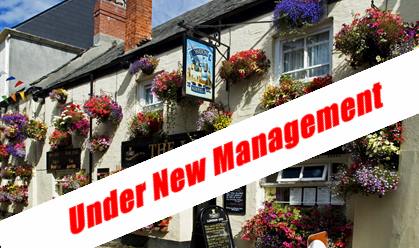Whilst no one can guarantee the success of your pub business I can give you some tips on how to make it through that all important first year in business.
According to government figures 20% of new businesses fail within the first year, hopefully this short guide will highlight some of the pitfalls and advise you on what you can do to ensure you celebrate not only your 1st pub birthday but many more to come.
Reasons for Business Failure
There is an extract of a list of over 60 reasons why businesses fail on the UK Insolvency website:
- Failure to focus on a specific market because of poor research.
- Failure to control cash by carrying too much stock, paying suppliers too promptly, and allowing customers too long to pay.
- Failure to control costs ruthlessly.
- Failure to adapt your offering to meet customer needs.
- Failure to carry out decent market research.
- Failure to build a team that is compatible and has the skills to finance, produce, sell, and market your offering
- Failure to pay taxes (PAYE, VAT, Income/corporation tax, business rates etc).
- Failure of businesses’ need to grow. Merely attempting stability or having even less ambitious objectives, businesses which did not try to grow didn’t survive.
- Failure to gain new markets.
- Under-capitalisation.
- Cash flow problems.
- Tougher market conditions.
- Poor management.
- Companies diversifying into new, unknown areas without a clue about costs.
- Company directors/ business owners spending too much money on frivolous purposes thus using up all available capital.
Top 5 things you can do to minimise failure in the first year
- Regularly appraise the cost of contracts with your suppliers to ensure you are getting a good deal. But don’t buy just on price – you won’t be able to justify the price of a gourmet sandwich or high priced meal if the ingredients are poor quality.
- Consider your wage expenses, for instance it may be worth employing someone just to cover the lunchtime rush, but not for the whole day. In a small pub you may be able to do the cleaning instead of employing a cleaner.
- Research the local market. Look at similar pub offerings and price your offering accordingly, don’t price yourself out of the market.
- Carefully monitor your stock to reduce wastage, and change drink or food orders and menus accordingly.
- Maximise your profits with extended services outside of busy times, for instance if your pub is quiet on a particular night, from experience in most of the pubs I have run Tuesday nights are the worst, then offer up your unused function room or other rooms in the pub to local groups/clubs to host their meetings.
The Dos and Don’ts of Your First Year
Do seek professional advice from the start: This is probably the best advice anyone can give you. Get legal, accounting and surveyors advice before you enter into a pub business. Along with solicitors, most accountants will offer you a free initial consultation to discuss your new business, for instance how you structure your bookkeeping from the start can really affect you in the long run. Getting a structural survey done before you take on a pub can save you thousands of pounds in unnecessary expenditure later or allow you to reduce your offer on the business in the first place. See separate articles on Choosing an Accountant and Structural Surveys.
